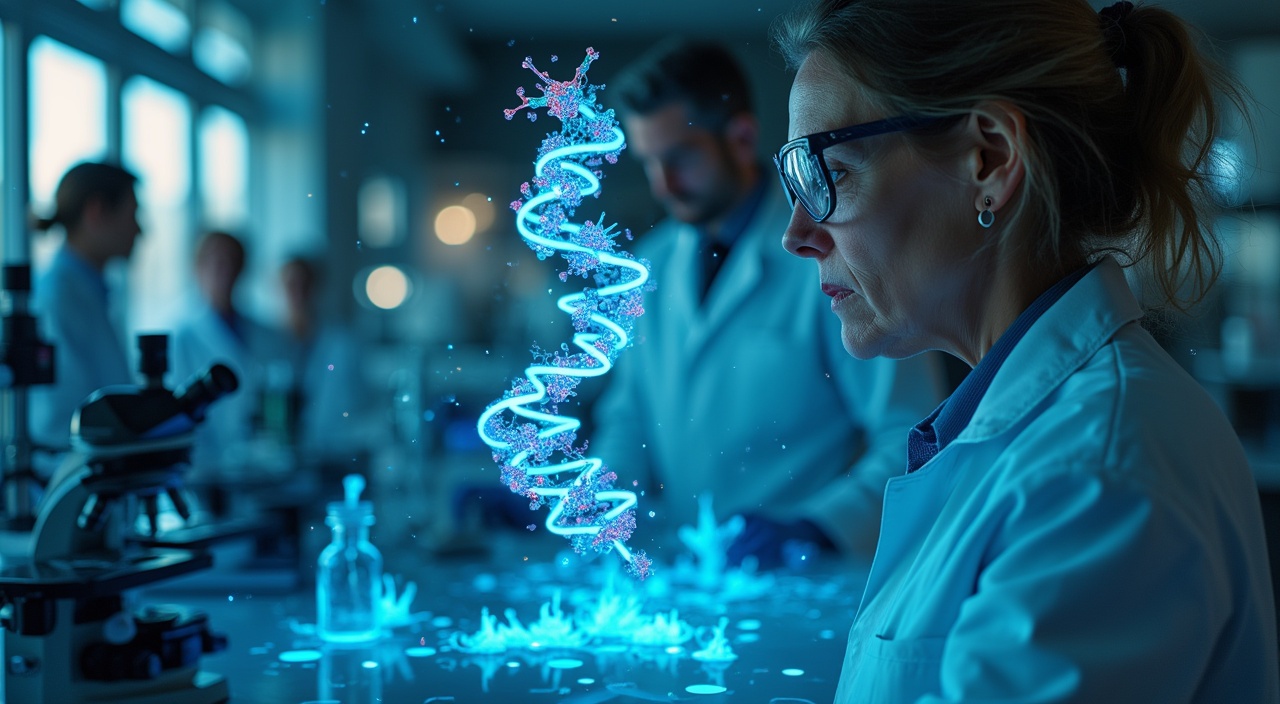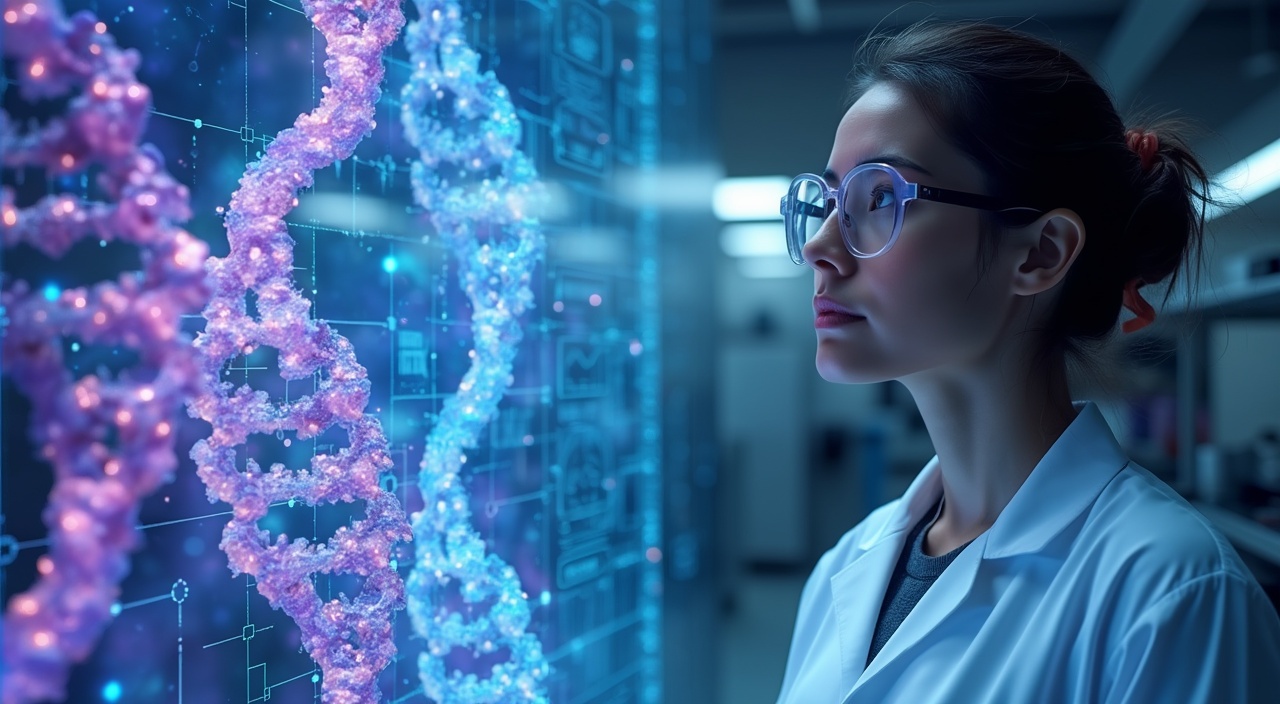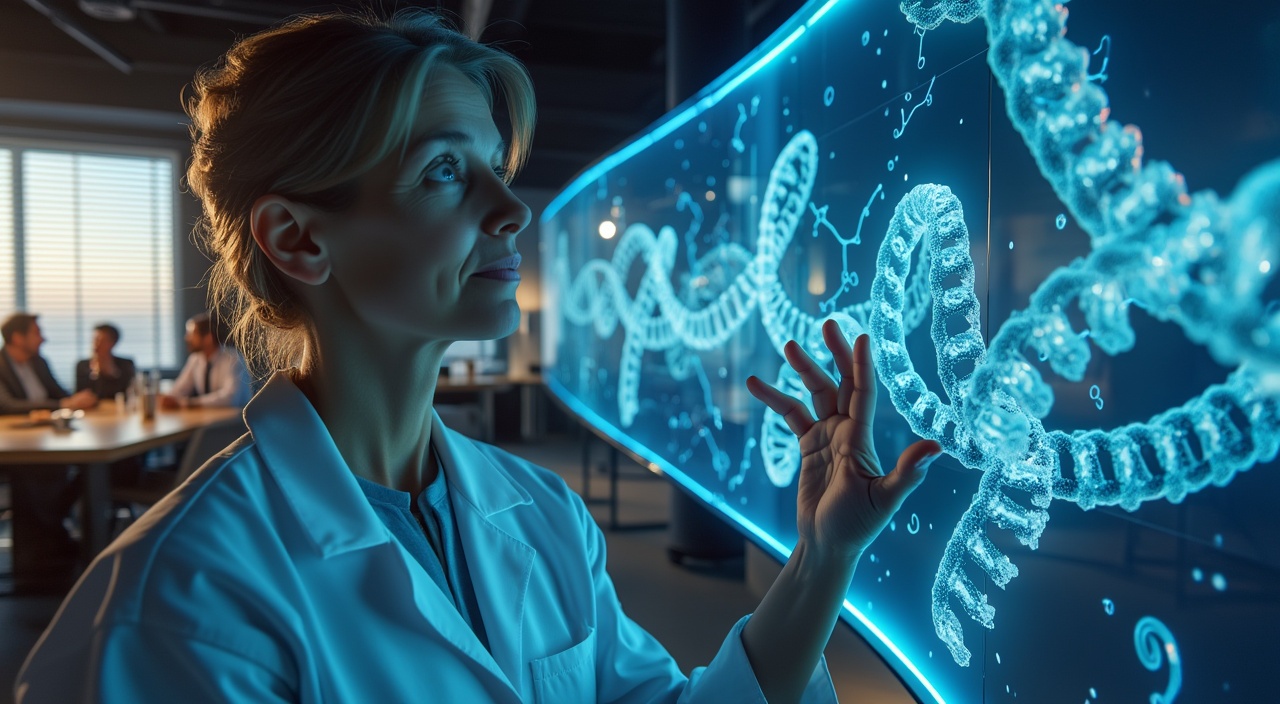I watched with fascination as AI’s breakthrough protein mapping technology earned a Nobel Prize, marking itself as a major disruptor in medical science. DeepMind’s AlphaFold has completely changed how we research protein structures, opening doors to faster drug discovery and potentially stopping diseases in their tracks.
Key Takeaways:
- AlphaFold mapped over 200 million protein structures in a single year, while traditional methods had discovered less than 1% of these structures previously
- The technology has been accessed by 2 million scientists across 190 countries, driving advancements in critical research areas like malaria vaccine development and cancer treatments
- Demis Hassabis believes AI could lead to “a single drug that might be the end of all diseases” within the next decade
- The Nobel Prize marks the first time AI’s direct scientific contribution has been recognized at this prestigious level
- By understanding protein structures, scientists can now design medications that perfectly bind to disease-causing proteins and predict potential side effects before human trials
Ever felt overwhelmed by the pace of AI advancement? I’ve been there too. As someone who’s spent decades helping businesses adapt to technological shifts, I can tell you this Nobel Prize win isn’t just another headline—it’s a signal of what’s coming for healthcare and business alike.
The implications reach far beyond research labs. Picture this: treatment options that once took decades to develop might soon arrive in years or even months. Here’s what I mean: when AlphaFold mapped 200 million protein structures in a single year, it accomplished what would have taken centuries using traditional methods.
Strange but true: this AI system is now being used by scientists across 190 countries, transforming how we approach everything from malaria vaccines to cancer treatments. Let that sink in.
AI Revolutionizes Homeschooling: Tailored Lessons & Smart Records Transform Education similarly shows how AI’s pattern recognition abilities are changing other essential aspects of our lives.
The Nobel Prize Significance
This isn’t just any award. For the first time, AI’s direct scientific contribution has received Nobel-level recognition. The good news? This validates what many of us in the tech world have been saying—AI isn’t just about automation; it’s about scientific discovery itself.
Demis Hassabis, CEO of Google DeepMind and the brilliant mind behind AlphaFold, has an even more ambitious vision. According to reports, he believes AI could lead to “a single drug that might be the end of all diseases” within the next decade.
But wait – there’s a catch: we need to ensure these powerful tools remain accessible to researchers worldwide rather than locked behind corporate walls.
Practical Applications Beyond Medicine
The business implications extend far beyond healthcare. This same technology that maps protein structures can help model complex systems in other industries:
- Supply chain optimization through better prediction models
- Material science advancements for manufacturing
- Environmental impact reduction through chemical analysis
The twist? Companies that fail to incorporate these AI advances risk falling hopelessly behind competitors. I’ve seen this pattern repeat itself with every technological revolution—from the internet to mobile to cloud computing.
My work with clients has consistently shown that AI Automation Revolutionizes Small Biz: Unlock Efficiency & Growth Today! for those willing to adapt early.
The Human Element Remains Crucial
Despite these incredible advances, I still believe the human element remains essential. AI gives us tools, but we provide the questions, context, and ethical frameworks.
Just as AI: Empowering Human Touch—Transforming Client Bonds Beyond the Myth explores, these technologies work best when enhancing rather than replacing human capabilities.
For business leaders, this Nobel Prize should serve as a wake-up call. The companies that thrive won’t be those with the biggest AI budgets but those who best integrate AI insights with human expertise.
As Demis Hassabis transitioned from chess prodigy to AI pioneer, he demonstrated the power of combining deep domain knowledge with computational thinking. Your business can follow a similar path by identifying where AI can solve your most persistent challenges.
Are you ready to explore how these emerging technologies might transform your business model? I’ve helped numerous companies identify their unique AI opportunities. What Joe Habscheid’s Clients Have to Say about Him shows the impact of strategic AI implementation across various industries.
The future belongs to those who adapt. While others debate the theoretical implications of AI, forward-thinking leaders are already applying these tools to create tangible results. Will you be among them?
The Nobel Prize Breakthrough
AI finally claimed its spot among scientific legends when Demis Hassabis and John Jumper received the 2024 Nobel Prize in Chemistry for their revolutionary work on AlphaFold. This marked history as the first Nobel Prize acknowledging AI’s direct contribution to scientific discovery.
From Twenty Minutes to Eternity
Hassabis had barely twenty minutes to process the news before it went public. “I was completely shocked,” he shared in an interview with Time. The Nobel Committee’s call caught him off guard during a routine morning at DeepMind’s offices.
This recognition caps an extraordinary sequence of honors for Hassabis, including:
- Knighthood from King Charles in early 2024
- Commander of the British Empire (CBE) in 2018
- Dan David Prize in 2020
- Wiley Prize in Biomedical Sciences in 2021
The Nobel Prize solidifies what many scientists already knew – AI isn’t just a tool but a genuine partner in scientific discovery, capable of making contributions worthy of our highest honors.

AlphaFold: Transforming Scientific Discovery
In 2020, DeepMind’s AlphaFold shattered biological boundaries by solving the 50-year-old protein folding problem. I’ve watched this AI transform the scientific landscape almost overnight.
The numbers speak for themselves: AlphaFold mapped over 200 million protein structures in a single year—when scientists had previously determined less than 1% of existing structures. Tasks that once took researchers years now finish in hours.
Revolutionary Impact on Global Research
The scientific community has embraced this breakthrough with open arms. The AlphaFold Protein Structure Database has been accessed by 2 million scientists across 190 countries, fueling advancements in:
- Malaria vaccine development
- Human longevity research
- Cancer treatment discovery
“We’re witnessing the beginning of a new era in molecular biology,” says Demis Hassabis, DeepMind CEO, who believes this technology could lead to “a single drug that might be the end of all diseases.”
The original AlphaFold 2 paper remains one of the most-cited scientific publications, cementing its place in AI Agents Won’t Replace You—But They Might Change What It Means to Be You.

The Path to Ending All Diseases
Could we see the end of all diseases within the next decade? According to Demis Hassabis, CEO of Google DeepMind, AI might make this once-impossible dream a reality.
Breaking the Drug Development Barrier
I’ve watched with amazement as AI transforms drug development timelines from years to mere weeks. At the heart of this revolution sits AlphaFold, which Hassabis described as a game-changing protein structure predictor. The system maps the complex folding patterns of proteins—the fundamental building blocks of life—with unprecedented accuracy.
From Prediction to Prevention
The implications stretch far beyond academic achievements. By understanding protein structures, scientists can:
- Design medications that perfectly bind to disease-causing proteins
- Predict drug side effects before human trials begin
- Create treatments for previously “undruggable” targets
This approach mirrors how I’ve helped businesses harness AI capabilities without replacing human expertise—complementing rather than competing with our biological understanding.
The Future of AI at Google DeepMind
Google DeepMind stands at the cutting edge of AI advancement, pushing beyond today’s capabilities into what feels like sci-fi territory. I’ve been tracking their progress, and what’s coming next will reshape how we interact with technology.
Breakthrough Projects Changing Our Reality
Project Astra represents DeepMind’s vision for an AI that can see, hear, and understand our world like never before. Unlike current assistants that operate in limited domains, Astra aims to comprehend the messy complexity of reality through advanced perception systems.
The Gemini AI model has evolved past simple text responses to understand and interact with the world in sophisticated ways. Each iteration brings it closer to handling nuanced human instructions across various contexts.
Several other projects showcase DeepMind’s momentum toward more capable AI:
- Genie 2 World Model – Creates interactive 3D worlds from simple prompts, letting users explore environments that never existed before
- VO2 Video Generation – Produces videos with realistic physics that follow natural laws, not just stitching together frames
These advances aren’t just impressive tech demos—they’re stepping stones toward Artificial General Intelligence (AGI). As DeepMind CEO Demis Hassabis told Time Magazine, “We’re building systems that can generalize their understanding across domains, just as humans do.”
The road to AGI isn’t just about raw computational power—it’s about creating systems that understand context, reason through problems, and adapt to new situations without specific programming for each scenario. DeepMind’s integrated approach might just make it happen sooner than we think.
Artificial General Intelligence on the Horizon
The clock is ticking on Artificial General Intelligence. We’re looking at a 5-10 year window before computers might match—or surpass—human-level thinking. This isn’t sci-fi anymore; it’s becoming our everyday reality.
AI’s Scientific Revolution
Current AI systems are already generating scientific hypotheses independently. Google DeepMind CEO Demis Hassabis recently told Time that AI’s ability to make scientific discoveries could lead to “a single drug that may be the end of all diseases.” This bold claim isn’t just hype—it’s backed by the stunning success of AlphaFold, which solved the 50-year protein folding problem that won the 2023 Nobel Prize in Chemistry.
I’ve watched AI transform from simple pattern recognition to systems that can reason through complex problems. The next major breakthrough will likely come in robotics, with machines that can not only think but physically interact with our world in helpful ways.
Your Life in 2030
By 2030, AI will be woven into the fabric of daily life. You’ll notice it in:
- Healthcare systems that predict illness before symptoms appear
- Personalized education that adapts to your learning style in real-time
- Smart homes that anticipate needs rather than just responding to commands
- Transportation networks that eliminate traffic and accidents
The shift won’t happen overnight, but the acceleration is already happening. As Hassabis noted in a recent interview, “The systems we’re building will soon help solve fundamental problems in science that could benefit humanity for decades to come.”
Navigating AI’s Ethical Landscape
The power to potentially end all disease comes with serious ethical considerations. I’ve seen firsthand how AI breakthroughs like protein folding can transform medicine, but this same technology raises important questions about safety and control.
Balancing Progress with Protection
DeepMind CEO Demis Hassabis has consistently pushed for careful handling of advanced AI systems. During a recent interview, he stressed the need for:
- International cooperation on AI safety standards
- Built-in ethical constraints for AI systems
- Proactive planning for high-consequence risks
- Teaching AI systems values through human demonstration
“The same tools that might cure cancer could create biological threats if misused,” Hassabis noted in his TIME100 interview.
Instead of asking if we can build something, we must ask if we should. The answer isn’t stopping innovation but creating systems that balance progress with protection. This approach safeguards AI’s lifesaving potential while acknowledging its risks.

Sources:
– Time Magazine: “Demis Hassabis Interview”
– Wikipedia: “Demis Hassabis”
– Entrepreneur: “How Google DeepMind CEO Went from Chess to AI Nobel Prize”
– Times of India: “Google DeepMind CEO Demis Hassabis Predicts Single Drug That May Be End of All Diseases”








